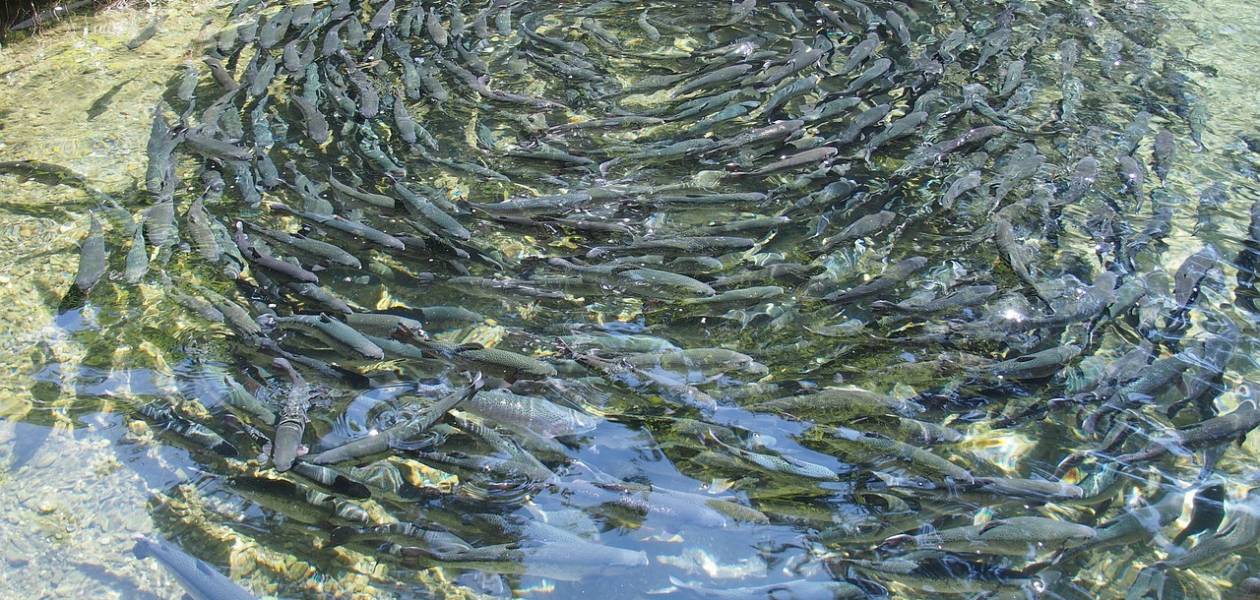
When consumers look to purchase more animal and planet-friendy products, many turn to labelling schemes for guidance. Little do they realise, the majority of sustainable aquaculture certification schemes fail to consider animal welfare at all. Essere Animali has launched a new campaign against misleading labelling in aquaculture.
According to the EU’s Common market for fisheries & aquaculture Regulation, sustainable aquaculture activities include environmental protection, animal health and animal welfare. Similarly, the World Organisation for Animal Health (WOAH) recognised fish as sentient beings capable of experiencing feelings such as fear and pain, and their welfare is explicitly mentioned in all official documents dealing with sustainability in aquaculture, from the European Commission’s Strategic Aquaculture Guidelines to the guidelines for companies developed by the Global Reporting Initiative. In other words, animal welfare is intrinsic to sustainability.
Certification schemes that fail to protect fish welfare will do nothing to relieve the unnecessary pain and suffering that farmed fish undergo in aquaculture. Practices such as high stocking densities, lack of environmental enrichment, poor water quality, painful procedures (egg/semen collection, vaccinations, catching for transport) and unstunned slaughter are highly stressful and lead to poor welfare outcomes for fish.
A poll carried out by Compassion in World Farming and YouGov in May 2020 found that 63% of participants were not clear on whether existing certification schemes protect fish welfare, but that 78% think that they should. Indeed, a recent study found that fish welfare is an important factor for consumers, and they were more likely to pay for an organic label if they knew that it addressed fish welfare.
With Essere Animali’s new campaign, UNsustainable aquaculture, the organisation is calling out an Italian certification scheme developed by the Italian Ministry of Agriculture together with the Italian fish producer association API for failing to address welfare. The scheme allows fish products to be labelled as “sustainable aquaculture”, without any specific animal welfare improvement, which Essere Animali claims misleads consumers. Essere Animali have four main requests for the scheme: to include a clear definition of animal welfare, an effective stunning requirement, and maximum densities and water quality requirements. Citizens are invited to participate in an email campaign to join the call for improved welfare standards.
Well-known global fish certification schemes also fall short on welfare. The Aquaculture Stewardship Council (ASC) is currently developing new fish welfare indicators that include stunning requirements, but ignore welfare standards during the farming phase. A public consultation of these indicators is foreseen by the end of the year.
Sources :
- Eurogroup for Animals
Posted on 2023-08-16 16:48








Comments